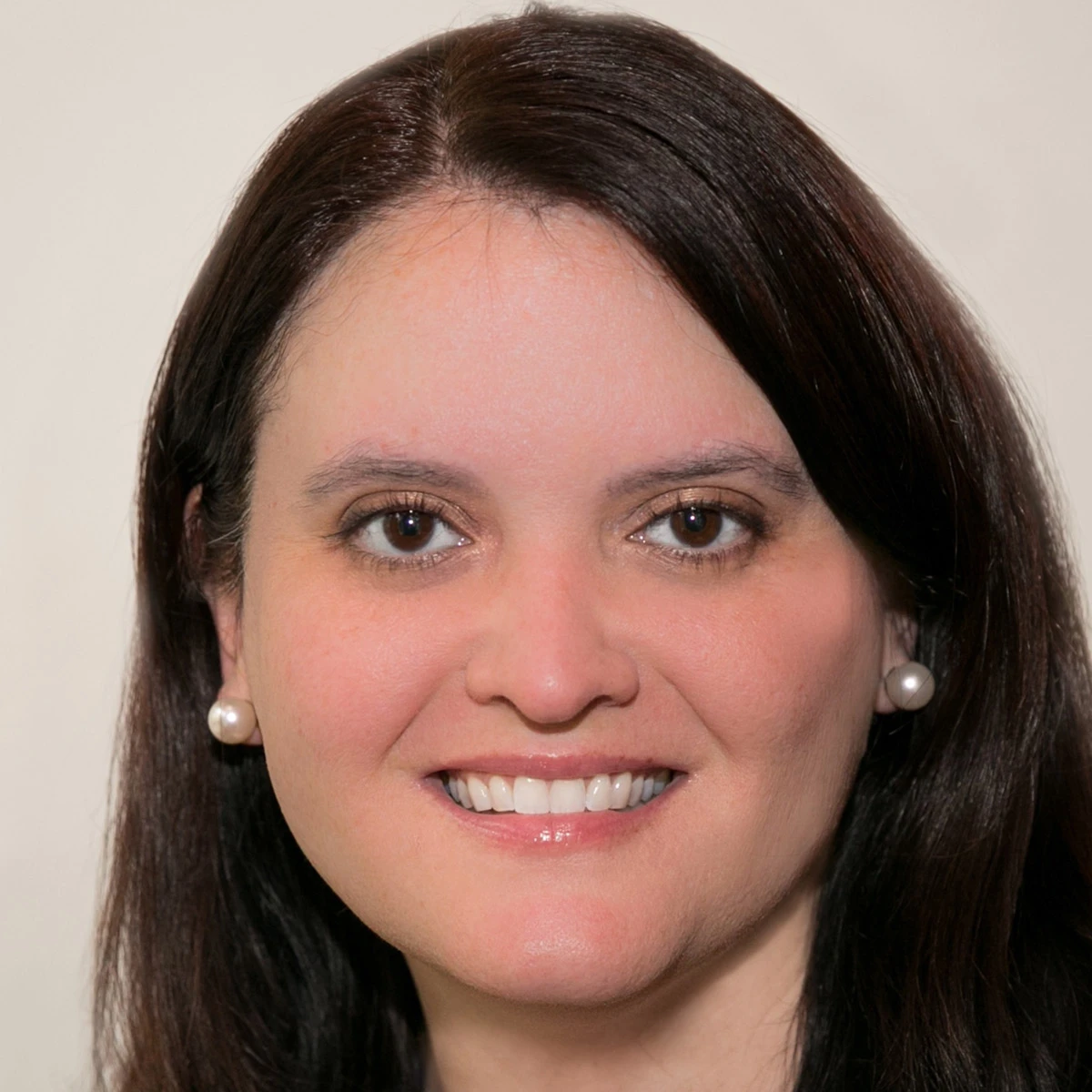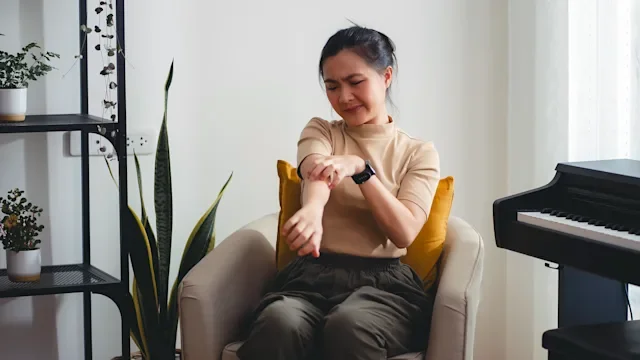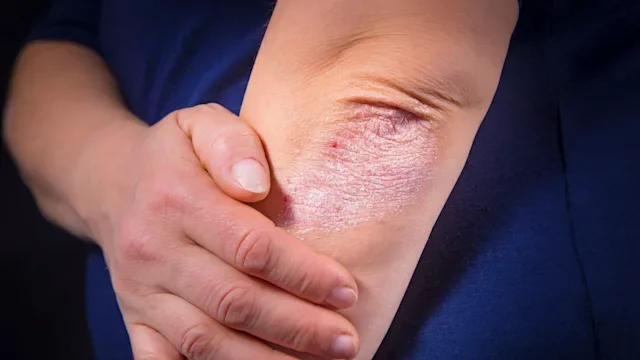Key takeaways:
Psoriasis is a common, immune-mediated skin condition that affects people of all ages.
Despite common belief, psoriasis isn’t contagious and it’s not caused by an infection.
Learning the facts about psoriasis can help remove the stigma associated with it.
Psoriasis is a skin disease resulting from an abnormal immune response. It affects over 8 million people in the U.S. For many, living with psoriasis is much more than skin deep. People with psoriasis are often stigmatized because of their skin. They’re labeled as contagious or blamed for their condition. And this contributes to the increased levels of depression that many people with psoriasis have.
There’s a lot of misinformation out there about psoriasis. Here, we’ll set the record straight on what actually causes psoriasis and why it isn’t contagious.
Can psoriasis spread from person to person?
No. Psoriasis isn’t due to an infection, so it’s never contagious. This means it can’t spread through contact from person to person. This is true no matter what it looks like or how severe it is. It makes no difference if you’re sharing a meal or a hug, swimming in the same pool, or playing on the same team. You can’t catch psoriasis from someone who has it.
Can scratching cause psoriasis to spread to other parts of your body?
Psoriasis isn’t contagious, so scratching it and touching other parts of your body won’t cause it to spread.
However, if you have psoriasis and you scratch (or injure) clear skin, it’s possible that you’ll develop psoriasis there. This is called the Koebner phenomenon. It happens because injuring the skin is a psoriasis trigger (not because it’s contagious).
How do people get psoriasis?
Scientists don’t know exactly how or why people get psoriasis. But it’s probably a combination of a few different factors, including:
An overactive immune system
Your genes
Environmental exposures (more on these below)
When people have psoriasis, it causes patches of skin to grow too fast. This leads to the thick, red or brown, scaly patches that develop on the skin.
What can trigger psoriasis?
Psoriasis has many different triggers. But keep in mind that triggers are personal. What worsens one person’s psoriasis may not affect someone else. Keeping a journal can help you identify your specific triggers.
Some common psoriasis triggers include:
Certain medications, like some beta blockers and nonsteroidal anti-inflammatory drugs (NSAIDs)
Drinking alcohol
Smoking
Stress
Infections, like strep throat and HIV
What does psoriasis feel like? Three people share their experiences on what it’s like to live with psoriasis.
Common psoriasis triggers you should know: From certain medications to stress, learn which specific triggers may be making your psoriasis worse.
Can Ozempic treat psoriasis? Read about how Ozempic may improve psoriasis symptoms in some people.
How can you prevent psoriasis from spreading?
The best way to keep psoriasis from spreading is to find a treatment that works for you. The best treatment depends on a few different factors, including how severe your psoriasis is and your preferences.
Here are some typical options. It’s common to combine more than one therapy at a time:
Medicated creams: These topical treatments are applied directly to the skin. Examples include topical corticosteroids and vitamin D analogues (like calcipotriene).
Systemic treatments: These treatments work throughout the body. They're available as pills (such as methotrexate and apremilast). They’re also available as biologics given as shots or infusions (like infliximab and ustekinumab)
Phototherapy (light therapy): This type of treatment exposes your skin to specific ultraviolet (UV) wavelengths of light. It’s usually done in your doctor’s office, but it can also be done at home.
- PrednisoneGeneric Deltasone and Rayos and Sterapred
- MedrolMethylprednisolone
- Fluticasone PropionateGeneric Cutivate and Flonase
Frequently asked questions
No, psoriasis isn't caused by poor hygiene. In psoriasis, the skin grows too quickly, causing red or brown patches with thick, white scale. Some people assume that the thick scale happens because the person isn’t clean. The truth is that the flakes can’t be washed off, and they have nothing to do with hygiene.
No. Psoriasis isn't caused by a bacterial or fungal infection. This is why it’s not contagious and can’t spread from person to person.
Talking to your partner about your psoriasis can be hard. You may feel embarrassed or worried about what they may think about you. It’s normal to have these feelings, especially if psoriasis affects your genitals (which is very common).
The National Psoriasis Foundation offers a resource called the Genital Psoriasis Quick Guide, which offers tips on how to talk to your partner about your psoriasis. When you feel ready to do so, talking to people who care about you can be a wonderful source of support.
No, psoriasis isn't caused by poor hygiene. In psoriasis, the skin grows too quickly, causing red or brown patches with thick, white scale. Some people assume that the thick scale happens because the person isn’t clean. The truth is that the flakes can’t be washed off, and they have nothing to do with hygiene.
No. Psoriasis isn't caused by a bacterial or fungal infection. This is why it’s not contagious and can’t spread from person to person.
Talking to your partner about your psoriasis can be hard. You may feel embarrassed or worried about what they may think about you. It’s normal to have these feelings, especially if psoriasis affects your genitals (which is very common).
The National Psoriasis Foundation offers a resource called the Genital Psoriasis Quick Guide, which offers tips on how to talk to your partner about your psoriasis. When you feel ready to do so, talking to people who care about you can be a wonderful source of support.
The bottom line
Psoriasis is a very common skin condition that affects millions of people. Despite what some people may think, psoriasis isn't contagious, and you can’t catch it from people who have it. Psoriasis isn't caused by an infection, and it can’t spread to other parts of your body. The best way to manage psoriasis and keep it from getting worse is to find a good treatment that works for you.

Why trust our experts?


References
Łakuta, P., et al. (2017). How does stigma affect people with psoriasis? Advances in Dermatology and Allergology.
Luo, A. (2014). Koebner phenomenon. DermNet.
National Psoriasis Foundation. (2024). Genital Psoriasis Guide.
National Psoriasis Foundation. (2025). About Psoriasis.
Pearl, R. L., et al. (2019). Stigmatizing attitudes toward persons with psoriasis among laypersons and medical students. Journal of the American Academy of Dermatology.












